-
61.Emil von Behring

-
Emil von Behring was widely known as a “saviour of children” for his discovery of a diphtheria antitoxin in 1890, for which he won a Nobel Prize for in 1901.
-
62.Enid M Tribe
-
Enid Tribe made history when she became one of the first women to be elected to The Physiological Society. The group of six women were elected on 3rd July 1915, making a huge step towards sexual equality and acknowledging women as equal in intelligence and academic rigour as men.
-
63.Enid MacRobbie

-
In what is still considered to be a ‘man’s world’, Enid MacRobbie became the first woman scientist in Cambridge to be awarded a Personal Chair because of her work in biophysics. While this honour is one to be proud of, many of her honours came late in her career. This has been attributed to the fact she is a woman and allowed 75% of the studies she worked on to be published without her name.
-
64.Erasmus Darwin

-
Erasmus Darwin will be remembered most commonly for his exceptionally famous grandson, Charles. However, Erasmus Darwin is a great example of an Enlightenment thinker.
-
65.Ernest Henry Starling
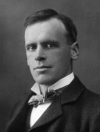
- Ernest Henry Starling made many contributions to our understanding of how the body functions and, along with William Bayliss, coined the word ‘hormone’.
-
66.Sir Ernst Chain
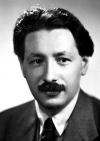
-
Ernst Boris Chain helped to found the field of antibiotics, beginning a new era in the fight against bacterial infections. His work remains one of the greatest contributions to human welfare.
-
67.Florence Buchanan
-
Florence Buchanan made history by becoming the first woman to become a member of The Physiological Society. Her main work focused on heart rhythms, or electrophysiology. She authored many research papers which was rare for a woman in the 19th century. Notably, she wrote the first ever article in the first issue of the Quarterly Journal of Experimental Physiology (QJEP), known today as Experimental Physiology.
-
68.Florence Nightingale

-
Florence Nightingale was known as the ‘Lady with the Lamp’ for her nursing of soldiers during the Crimean War, when she made night-time rounds of the wards. She is known for transforming nursing and her influence is still felt in modern healthcare. However, it was her work as a statistician that helped to bring these changes about.
-
69.Francis Crew
-
Francis Crew was a zoologist, geneticist whose research contributed greatly to our understanding of the mechanisms of inheritance, genetics of sex and the endocrine glands. Crew was also one of the three founding fathers of the Society of Experimental Biology.
-
70.Francis Crick

-
Francis Harry Compton Crick was born in 1916 in the then Northamptonshire village of Weston Favell, now part of Northampton. Crick’s grandfather, who passed away before Francis’s birth, was a naturalist and regularly corresponded with Charles Darwin. This may have influenced the young Crick, but his interest in science was encouraged by his uncle Walter who lived nearby and taught him simple chemical experiments and other skills such as blowing glass.
-
71.Francis Darwin

-
Francis Darwin was a keen botanist who explored phototropism - how plants grow towards sunlight - with his father Charles Darwin. Their work led to the discovery of the important plant hormone auxin.
-
72.Francois Jacob
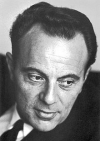
-
Intelligent, inquisitive, and suppressed. These three words describe Nobel Prize winner Francois Jacob during his childhood. Luckily, only the former two carried on into adulthood. His family life and schooling where riddled with what he described as a “draconian regime” filled with strong religious ideals.
-
73.Dr Françoise Barré-Sinoussi

-
Françoise Barré-Sinoussi is a French virologist who, alongside Luc Montagnier, identified the human immunodeficiency virus (HIV) in 1983, for which they both won the Nobel Prize.
-
74.Frank Elgee
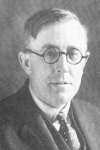
-
Frank Elgee battled against disabling illness and a poor background to publish the first regional survey in Britain.
-
75.Professor Frank Pantridge
-
Professor Frank Pantridge developed the portable defibrillator, which has saved many lives.
-
76.Professor Franz Halberg
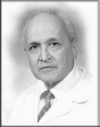
-
Professor Franz Halberg is considered to be the father of chronobiology, the study of biological rhythms. He coined the term ‘circadian’, and his distinguished research career focussed on the clinical significance of built-in biological rhythms.
-
77.Fred Sanger
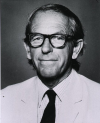
-
Genomics is a field of genetics that aims to sequence and analyse the structure and function of the genome of an organism (the complete DNA within the organism). Fred Sanger developed a technique to sequence DNA (work out the order in which the 4 bases adenine, thymine, cytosine and guanine were arranged in DNA). This technique has been a fundamental tool to researchers. Sanger’s sequencing technique was used to determine the sequence of bases in human DNA in the 1990 Human Genome Project.
-
78.Frederick Twort
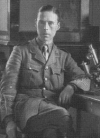
-
Frederick Twort was a British bacteriologist and the father to modern virology, having been the first to discover viruses that infect bacteria, called bacteriophages.
-
79.Friedrich Sertürner

-
Friedrich Sertürner was a German scientist who transformed the pharmaceutical industry and medicine with the discovery of morphine, the painkiller that's derived from opium in the poppy plant.
-
80.Galen
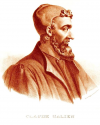
-
Galen was a Greek physician, surgeon and philosopher in the Roman Empire whose influence was felt for many centuries, affecting the development of anatomy, physiology, pathology, pharmacology and neurology as well as philosophy.



